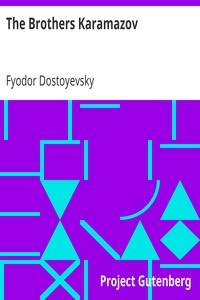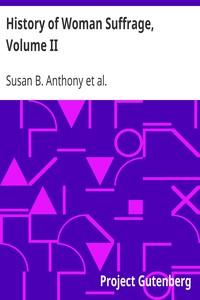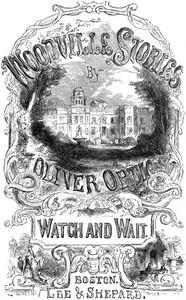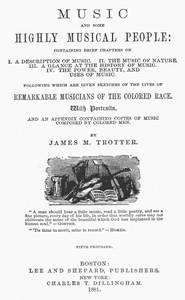Read this ebook for free! No credit card needed, absolutely nothing to pay.
Words: 222546 in 83 pages
This is an ebook sharing website. You can read the uploaded ebooks for free here. No credit cards needed, nothing to pay. If you want to own a digital copy of the ebook, or want to read offline with your favorite ebook-reader, then you can choose to buy and download the ebook.


: The Brothers Karamazov by Dostoyevsky Fyodor Garnett Constance Translator - Didactic fiction; Fathers and sons Fiction; Russia Social life and customs 1533-1917 Fiction; Brothers Fiction Best Books Ever Listings
twenty years yet, as that dear good woman from Vishegorye, with her little Lizaveta in her arms, wished me yesterday. God bless the mother and the little girl Lizaveta," he crossed himself. "Porfiry, did you take her offering where I told you?"
He meant the sixty copecks brought him the day before by the good-humored woman to be given "to some one poorer than me." Such offerings, always of money gained by personal toil, are made by way of penance voluntarily undertaken. The elder had sent Porfiry the evening before to a widow, whose house had been burnt down lately, and who after the fire had gone with her children begging alms. Porfiry hastened to reply that he had given the money, as he had been instructed, "from an unknown benefactress."
"Get up, my dear boy," the elder went on to Alyosha. "Let me look at you. Have you been home and seen your brother?" It seemed strange to Alyosha that he asked so confidently and precisely, about one of his brothers only--but which one? Then perhaps he had sent him out both yesterday and to-day for the sake of that brother.
"I have seen one of my brothers," answered Alyosha.
"I mean the elder one, to whom I bowed down."
"I only saw him yesterday and could not find him to-day," said Alyosha.
"Make haste to find him, go again to-morrow and make haste, leave everything and make haste. Perhaps you may still have time to prevent something terrible. I bowed down yesterday to the great suffering in store for him."
He was suddenly silent and seemed to be pondering. The words were strange. Father Iosif, who had witnessed the scene yesterday, exchanged glances with Father Pa?ssy. Alyosha could not resist asking:
"Father and teacher," he began with extreme emotion, "your words are too obscure.... What is this suffering in store for him?"
"Don't inquire. I seemed to see something terrible yesterday ... as though his whole future were expressed in his eyes. A look came into his eyes--so that I was instantly horror-stricken at what that man is preparing for himself. Once or twice in my life I've seen such a look in a man's face ... reflecting as it were his future fate, and that fate, alas, came to pass. I sent you to him, Alexey, for I thought your brotherly face would help him. But everything and all our fates are from the Lord. 'Except a corn of wheat fall into the ground and die, it abideth alone; but if it die, it bringeth forth much fruit.' Remember that. You, Alexey, I've many times silently blessed for your face, know that," added the elder with a gentle smile. "This is what I think of you, you will go forth from these walls, but will live like a monk in the world. You will have many enemies, but even your foes will love you. Life will bring you many misfortunes, but you will find your happiness in them, and will bless life and will make others bless it--which is what matters most. Well, that is your character. Fathers and teachers," he addressed his friends with a tender smile, "I have never till to-day told even him why the face of this youth is so dear to me. Now I will tell you. His face has been as it were a remembrance and a prophecy for me. At the dawn of my life when I was a child I had an elder brother who died before my eyes at seventeen. And later on in the course of my life I gradually became convinced that that brother had been for a guidance and a sign from on high for me. For had he not come into my life, I should never perhaps, so I fancy at least, have become a monk and entered on this precious path. He appeared first to me in my childhood, and here, at the end of my pilgrimage, he seems to have come to me over again. It is marvelous, fathers and teachers, that Alexey, who has some, though not a great, resemblance in face, seems to me so like him spiritually, that many times I have taken him for that young man, my brother, mysteriously come back to me at the end of my pilgrimage, as a reminder and an inspiration. So that I positively wondered at so strange a dream in myself. Do you hear this, Porfiry?" he turned to the novice who waited on him. "Many times I've seen in your face as it were a look of mortification that I love Alexey more than you. Now you know why that was so, but I love you too, know that, and many times I grieved at your mortification. I should like to tell you, dear friends, of that youth, my brother, for there has been no presence in my life more precious, more significant and touching. My heart is full of tenderness, and I look at my whole life at this moment as though living through it again."
Here I must observe that this last conversation of Father Zossima with the friends who visited him on the last day of his life has been partly preserved in writing. Alexey Fyodorovitch Karamazov wrote it down from memory, some time after his elder's death. But whether this was only the conversation that took place then, or whether he added to it his notes of parts of former conversations with his teacher, I cannot determine. In his account, Father Zossima's talk goes on without interruption, as though he told his life to his friends in the form of a story, though there is no doubt, from other accounts of it, that the conversation that evening was general. Though the guests did not interrupt Father Zossima much, yet they too talked, perhaps even told something themselves. Besides, Father Zossima could not have carried on an uninterrupted narrative, for he was sometimes gasping for breath, his voice failed him, and he even lay down to rest on his bed, though he did not fall asleep and his visitors did not leave their seats. Once or twice the conversation was interrupted by Father Pa?ssy's reading the Gospel. It is worthy of note, too, that no one of them supposed that he would die that night, for on that evening of his life after his deep sleep in the day he seemed suddenly to have found new strength, which kept him up through this long conversation. It was like a last effort of love which gave him marvelous energy; only for a little time, however, for his life was cut short immediately.... But of that later. I will only add now that I have preferred to confine myself to the account given by Alexey Fyodorovitch Karamazov. It will be shorter and not so fatiguing, though of course, as I must repeat, Alyosha took a great deal from previous conversations and added them to it.
Notes of the Life of the deceased Priest and Monk, the Elder Zossima, taken from his own words by Alexey Fyodorovitch Karamazov.
Free books android app tbrJar TBR JAR Read Free books online gutenberg
More posts by @FreeBooks

: History of Woman Suffrage Volume II by Anthony Susan B Susan Brownell Editor Gage Matilda Joslyn Editor Stanton Elizabeth Cady Editor - Women Suffrage United States History; Women Suffrage History; Women's rights United States History; Women's rights Histo








